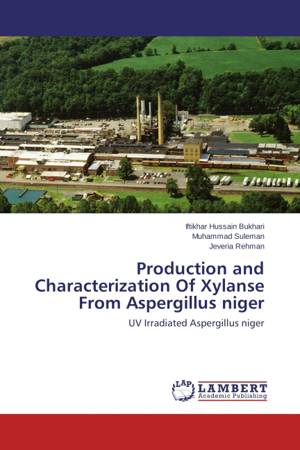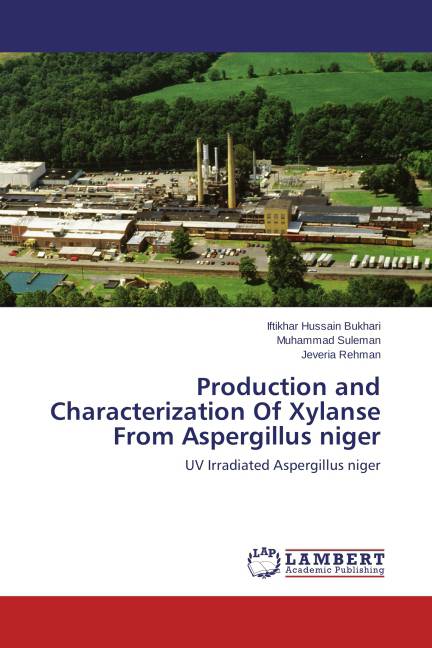
- Afhalen na 1 uur in een winkel met voorraad
- Gratis thuislevering in België vanaf € 30
- Ruim aanbod met 7 miljoen producten
- Afhalen na 1 uur in een winkel met voorraad
- Gratis thuislevering in België vanaf € 30
- Ruim aanbod met 7 miljoen producten
Zoeken
Production and Characterization of Xylanse from Aspergillus Niger
UV Irradiated Aspergillus niger
Bukhari Iftikhar Hussain, Suleman Muhammad, Rehman Jeveria
Paperback | Engels
€ 63,95
+ 127 punten
Omschrijving
Xylanase enzymes are group of enzymes that can degrade Xylan present in plants. Xylan lignin and cellulose formed a complex matrix in plants. Lignin imparts colour to cellulose and thus eventually imparts colour to paper and pulp. Xylanase facilitates the removal of lignin from the paper pulp thus improves the brightness of paper. Xylanase was produced by Aspergillus niger using different carbon sources. UV irradiation of Aspergillus niger slightly improves the Xylanase activity than native Aspergillus niger. Twenty minutes exposure of Aspergillus niger to UV irradiation was considered suitable for the production of Xylanase. Wheat bran with 3.5% concentration was considered best substrate for Xylanase production than corn cobs and sugarcane baggasse. Maximum Xylanase production was observed at 30oC and pH 5.6.
Specificaties
Betrokkenen
- Auteur(s):
- Uitgeverij:
Inhoud
- Aantal bladzijden:
- 196
- Taal:
- Engels
Eigenschappen
- Productcode (EAN):
- 9783659596797
- Verschijningsdatum:
- 9/09/2014
- Uitvoering:
- Paperback
- Formaat:
- Trade paperback (VS)
- Afmetingen:
- 152 mm x 229 mm
- Gewicht:
- 294 g

Alleen bij Standaard Boekhandel
+ 127 punten op je klantenkaart van Standaard Boekhandel
Beoordelingen
We publiceren alleen reviews die voldoen aan de voorwaarden voor reviews. Bekijk onze voorwaarden voor reviews.











